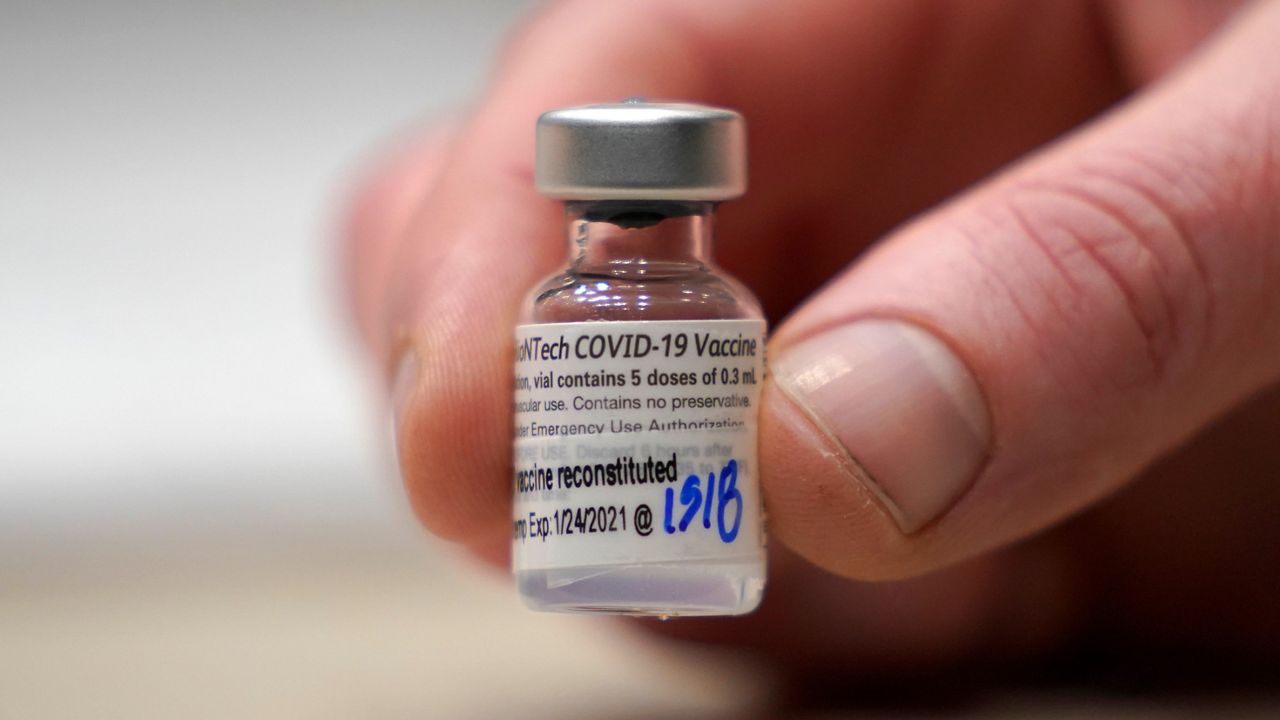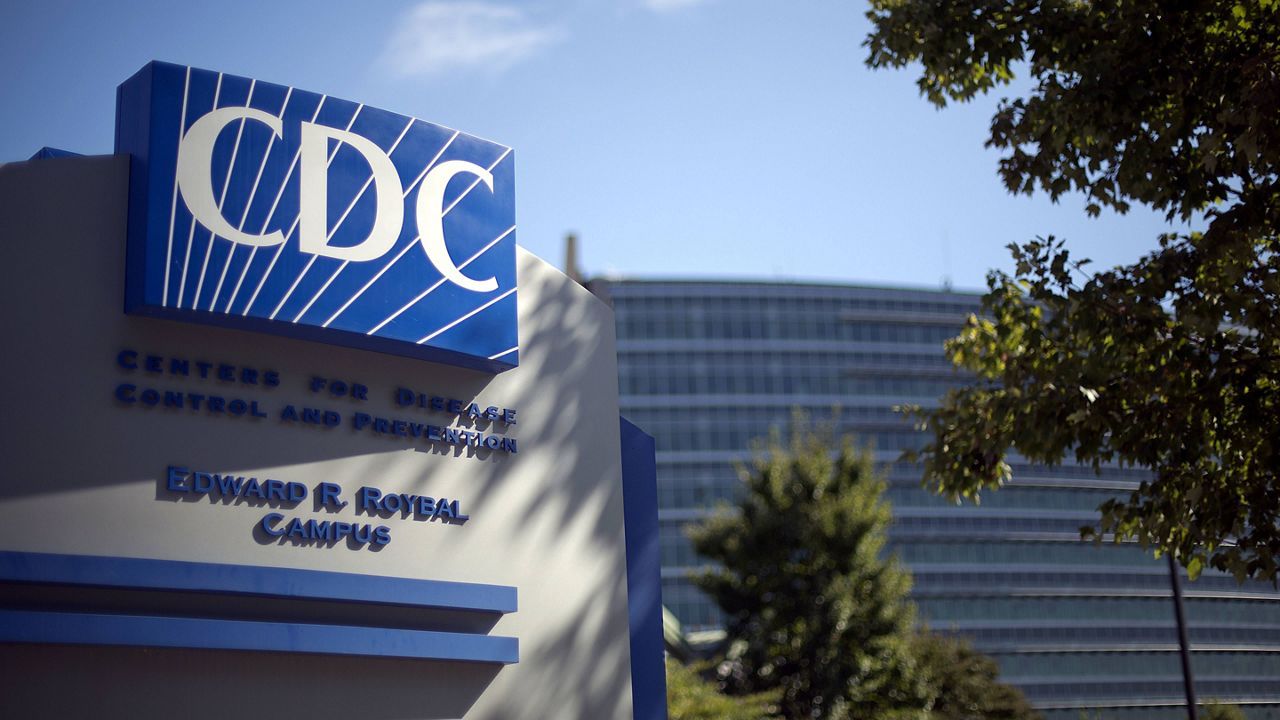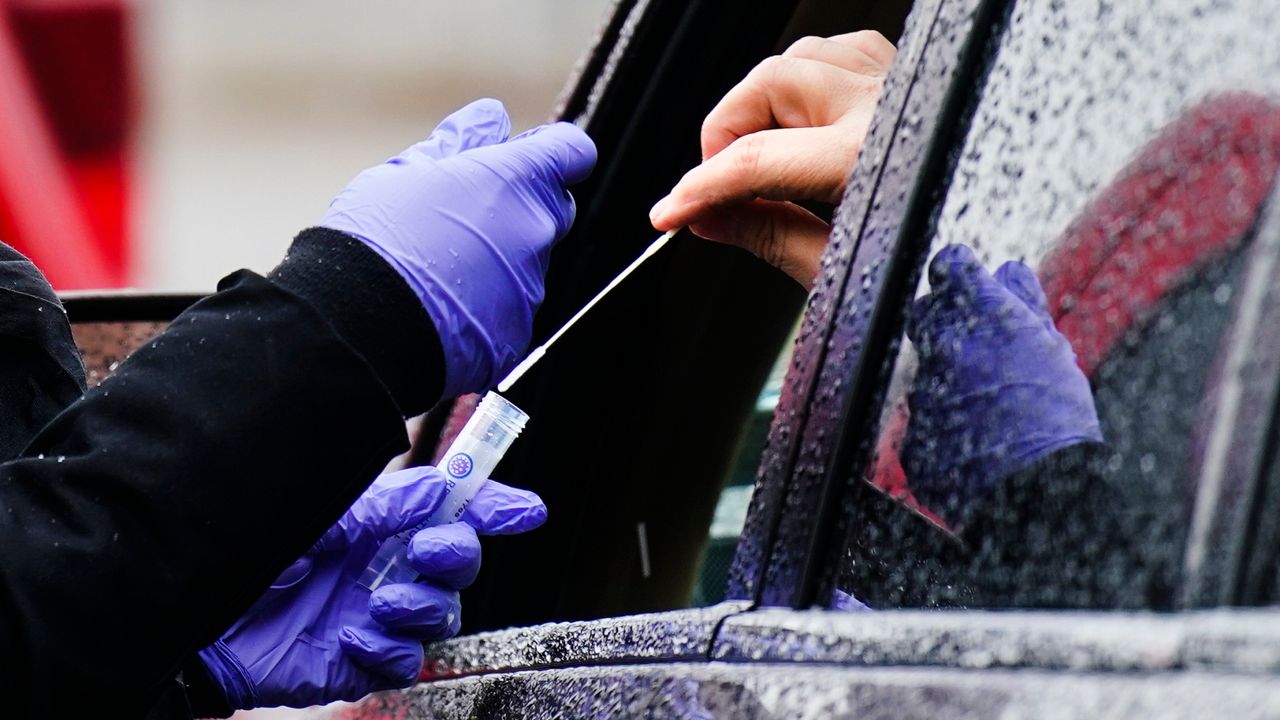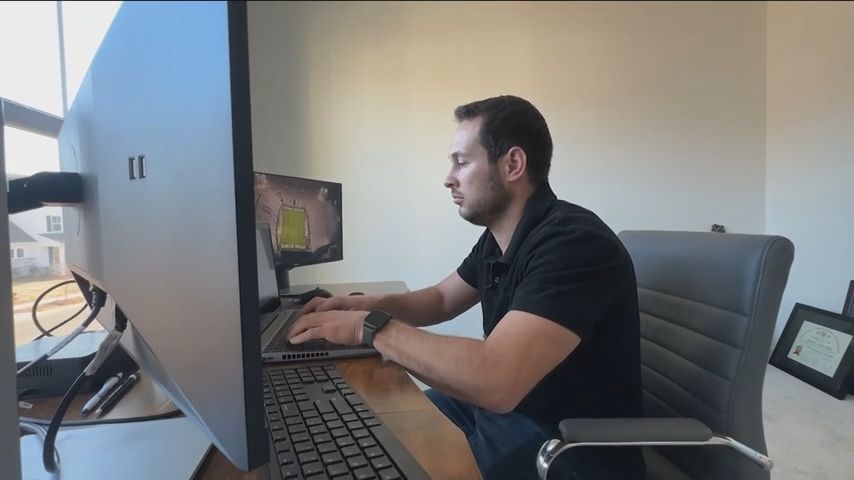At first, North Carolina didn't have enough coronavirus vaccine doses to meet demand and people waited to get their shots. But now, the state has plenty of doses to go around and they are trying to convince people, hesitant to get vaccinates, to get their shot.
The coronavirus vaccine rollout in North Carolina got off to a slow start. The pace picked up as hospitals and local health departments vaccinate more people across North Carolina.
Health care workers started getting the first coronavirus vaccine shots in the middle of December. The shot became available to anyone who wanted on on April 7.
On May 10, the Federal Drug Administration approved Pfizer's COVID-19 vaccine for children as young as 12.
As of May 12, more than half of adults in North Carolina have had at least one shot.
This is the biggest vaccination campaign in the history of the United States. Since the beginning of 2021, the campaign has gone from not having enough doses to go around to having plenty of vaccine available and trying to convince holdouts to get their shots.
There are three vaccines available, from Pfizer, Moderna and Johnson & Johnson. The Pfizer and Moderna vaccines require two doses, but the Johnson & Johnson only needs one shot.
With with Gov. Roy Cooper's goal of getting two-thirds of adults in the state vaccinated, here are some common questions about getting the vaccine in North Carolina:
When can I get the vaccine?
Vaccines are now open to everyone 16 and older in North Carolina.
North Carolina used a priority list of who can get the vaccine and when. The list is broken down into five groups, starting with Group 1, frontline health care workers and people who work or live in long-term care facilities like nursing homes.
The state continues to vaccinate people in that first group and Group 2: anybody 65 and older. There are more than 1.7 million people in North Carolina over 65, according to the Census Bureau’s latest estimates.
Group 3 is for frontline essential workers in North Carolina, including police officers, teachers, grocery store workers, clergy and postal workers. Get more details on who qualifies for Group 3 here. Teachers in Group 3 began getting the shots in February and essential workers could start gettign vaccinated on March 3.
Group 4 is for anyone 16 and up at high risk for exposure and increased risk of severe illness who haven’t already received the vaccine. This includes anyone incarcerated who has not already been vaccinated. Vaccinations for people in Group 4 with medical conditions begins March 17.
High-risk medical conditions include cancer, serious heart conditions, Type 2 diabetes and COPD. See the full list of conditions included in Group 4 here.
On March 31, essential workers in Group 4 can start getting the vaccine, including people in manufacturing, utilities, retail and hotels. See the list of industries included in Group 4 here.
Group 5 is for everyone else 16 and older who wants to get vaccinated and hasn’t already qualified. North Carolina began vaccinating everyone 16 and older on April 7.
Children are not able to get vaccinated as drug companies continue to test the vaccine on people under 16 years old.
The eligible groups can vary by county, so it’s best to check with county health departments or hospitals before signing up to get the shot.
How will I know when it’s my turn?
Everyone 16 and older can get vaccinated in North Carolina as of April 7.
How many doses are available?
There’s been frequent media coverage about vaccine shortages in North Carolina and around the country. The state's vaccine supply has steadily increased and there are now ample doses for people who want to get their shot.
The exact number of doses sent to the state each week is decided by federal officials based on the state’s population of people 18 and older.
As of early March, North Carolina was receiving about 225,000 first doses of the vaccine each week, according to Cohen. The state is getting additional doses through federal programs, including at a FEMA vaccination center in Greensboro, at Walgreens and CVS pharmacies, and federal health clinics, Cohen said.
The state will need 17 to 18 million doses of the two-dose vaccines to vaccinate everyone who wants one in North Carolina, according to the state’s top public health official.
Where can I get the shot?
Local public health departments and many hospitals in North Carolina are in charge of giving the shots. They are giving the vaccines through a combination of regular vaccine clinics and mass vaccination sites. Many of the vaccination clinics require an appointment. Walgreens, CVS and other pharmacies are also giving vaccines to people who are eligible.
The North Carolina DHHS keeps an updated list of vaccination sites in the state here.
Can I go to a different county to get the shot?
You can go to a different county, or even to a neighboring state, to get the vaccine.
Do I have to get vaccinated?
The state does not require people to get vaccinated, but your employer may, especially if you work directly with people who may be infected.
Can children get the vaccine?
People under 16 cannot get the coronavirus vaccine until clinical trials can show the drug is safe and effective for children. The FDA is considering an application from Pfizer to make its vaccine available to children 12 and older.
What about pregnant women?
According to DHHS, “Pregnant and breastfeeding women may choose to receive the Pfizer or Moderna COVID-19 vaccines. Pregnant women can talk with their doctors before making the choice.”
Researchers are planning studies of the vaccine on pregnant people, but right now there is limited data on pregnancy and the COVID-19 vaccines, according to the Centers for Disease Control and Prevention.
“Based on how mRNA vaccines work, experts believe they are unlikely to pose a specific risk for people who are pregnant. However, the actual risks of mRNA vaccines to the pregnant person and her fetus are unknown because these vaccines have not been studied in pregnant women,” according to the CDC.
“Both vaccine manufacturers are monitoring people in the clinical trials who became pregnant,” the CDC says.
What if I’ve already had the virus?
North Carolina public health officials say people who have already had COVID-19 should still get vaccinated to prevent getting infected again.
People who were treated for the virus with monoclonal antibodies or convalescent plasma should wait 90 days until getting vaccinated, DHHS says.
Why is the process different for staff and residents in long-term care facilities?
The vaccination campaign for people who work and live in long-term facilities like nursing homes is being run by the federal government through a separate system. Federal public health officials have a partnership with Walgreens and CVS to administer those vaccines.
How much does it cost to get vaccinated?
The vaccine is free.
Can I get a ride to a vaccination site?
Yes, you can contact your local transit agency for a ride to a vaccination site. The state DHHS and the Department of Transportation put aside $2.5 million of federal funding to pay local agencies to help with rides. Get contact information for your local transit agency here.
Do I need an ID to get the vaccine?
The state does not require identification to get vaccinated. Some health care providers or employers may want to see an ID.
Why do I need two shots?
Based on clinical trials, both the Moderna and Pfizer vaccines are 95% effective after two doses. The second dose of the Pfizer vaccine comes four weeks after the first. For the Moderna vaccine, it’s three weeks.
How do I know when I need a second shot?
When you go to get the first vaccine, the provider will put your information in a centralized system run by the state. You will also get a card with a date to get your second shot. Many providers will have a system to alert you when it's time for your next appointment by text or email. People have to get two shots of the same vaccine.
What are the possible side effects?
Some people have temporary reactions to the vaccine, like “a sore arm, headache or feeling tired and achy for a day or two,” according to DHHS.
The side effects are more likely after getting the second shot. Doctors say the side effects are a good sign that the vaccine is doing its job. People can take Tylenol or ibuprofen if they have any side effects. There have been a handful of cases of severe allergic reactions to the Pfizer vaccine, but those are very rare.
What about allergic reactions?
Most allergic reactions to the Pfizer vaccine happen within 15 minutes of getting the shot, DHHS says. According to a study from the CDC, in one week of delivering almost 1.9 million doses of the Pfizer vaccine, there were 21 cases of severe allergic reactions, called anaphylaxis. More than 70% of those were in the first 15 minutes. Almost all of those people had documented allergies to ingredients in the vaccine.
When people get the vaccine, they will have to stay for 15 to 30 minutes after getting the shot so the provider can monitor them for any severe reactions. The CDC says providers should have epinephrine treatment for anaphylaxis available, commonly known as an EpiPen.
Do I need to sign a consent form?
“You can provide verbal consent. Written consent is not generally required, but some providers may require or request written consent,” according to DHHS.
What if I just got a different vaccine?
Public health officials say you should wait at least two weeks if you just got another vaccine, including for the flu.
Do I need to wear a mask after I get vaccinated?
Yes, you still need to follow the state mask mandate and wear a facemask.
Do the vaccines work right away?
No. People are not considered fully vaccinated until two weeks after getting the second shot from a two-dose vaccine or the one shot of the Johnson & Johnson vaccine.
Would I still need to quarantine if I’m exposed?
This is still an open question, but state public health officials say for now you still need to quarantine if you come in contact with someone who has COVID-19. In March 8 guidance from the CDC, public health officials said people who are vaccinated do not have to quarantine after being exposed unless they are showing syptoms.
Can I visit with friends and family again?
Fully vaccinated people can privately visit with other people without masks or social distancing, according to guidelines from the CDC released March 8. “For example, fully vaccinated grandparents can visit indoors with their unvaccinated healthy daughter and her healthy children without wearing masks or physical distancing, provided none of the unvaccinated family members are at risk of severe COVID-19,” the CDC said.
How long will the vaccine work?
This is another open question. The vaccines have not been around long enough to know how long they will protect people from the coronavirus.
Public health officials say in the long run, it’s possible that the coronavirus vaccine could be like a flu shot people get once a year.
Are the vaccines safe?
Yes. Severe side effects are extremely rare. A study from the CDC on one week of vaccinations showed 21 severe allergic reactions out of almost 1.9 million doses given of the Pfizer vaccine.
“All the COVID-19 vaccines being used have gone through rigorous studies to ensure they are as safe as possible. Systems that allow CDC to watch for safety issues are in place across the entire country,” the CDC says.
On Aprl 13, the FDA and CDC issued a joint statement recommending that states pause using Johnson & Johnson's COVID-19 vaccine "out of an abundance of caution" after 6 recipients in the U.S. developed a rare disorder involving blood clots. After reviewing safety data, federal public health officials once again gave the all-clear for the Johnson & Johnson vaccine.
Do the vaccines work against the new variants?
The coronavirus, like the flu and other viruses, mutate and new variants emerge. Several new variants appear to spread more easily between people, according to public health officials.
Researchers are studying how effective the vaccines are against the new variants, but it’s still an open question.
“So far, studies suggest that antibodies generated through vaccination with currently authorized vaccines recognize these variants. This is being closely investigated and more studies are underway,” the CDC says.
What are the different types of vaccines?
Two vaccines, from Pfizer and Moderna are approved for use in the United States. Clinical trials showed both to be 95% effective against the virus. Both vaccines received emergency use authorization in December.
Federal officials gave emergency approval to a third vaccine, from Johnson & Johnson, in February. This new vaccine is the first to only require a single dose.
Studies have shown the Johnson & Johnson vaccine is not as effective as the others. The company says overall the vaccine was 66% effective at preventing moderate to severe cases of the coronavirus. It was 85% effective at stopping the most serious symptoms.
Another vaccine, from drugmaker Novavax, is in trials and could be in front of the FDA for emergency approval soon.
DHHS Vaccination Data Dashboard









-4)